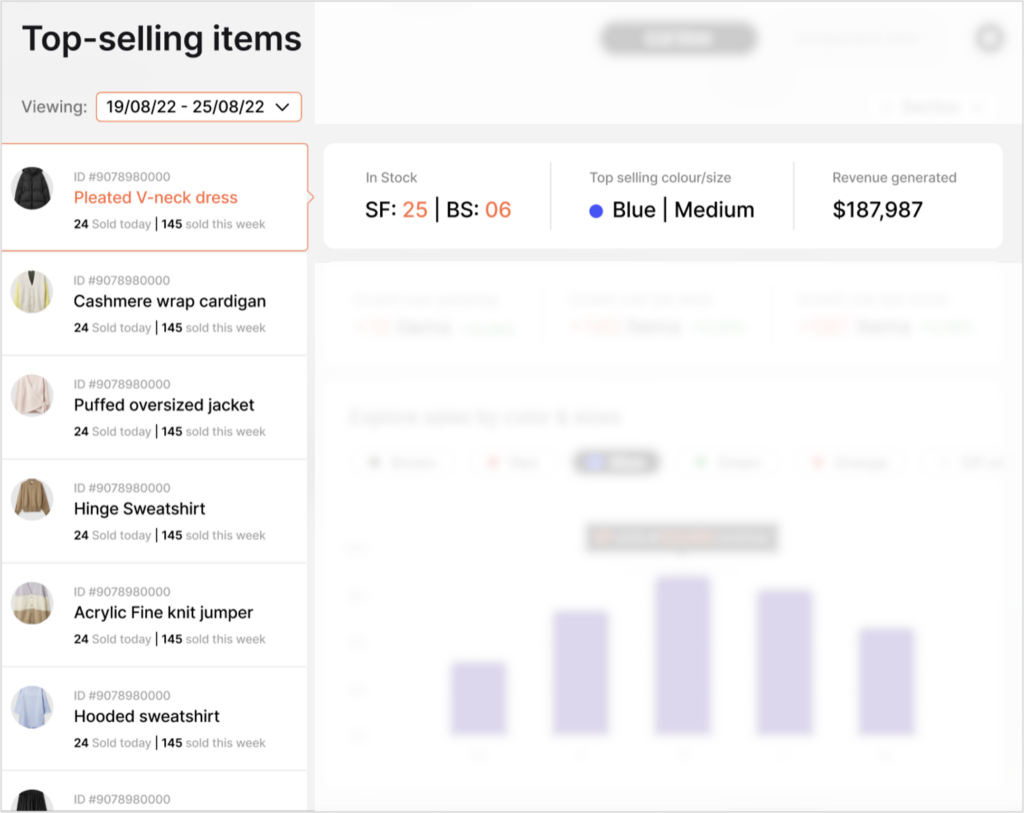


We’ve entered a new era for physical retail and big box stores.
As online shopping has become deeply ingrained in consumer habits, customers now have higher expectations when they visit physical stores, seeking a personalized and immersive experience. The convenience and customization provided by online shopping have set a new standard, requiring physical stores to offer more than just basic services to attract and retain customers. In fact, 71% of consumers expect businesses to deliver personalized interactions — and 76% will switch brands or stores if they don’t like their experience.
But flashy, short-term tactics aren’t the answer. Relying solely on reactive methods to get customers in the door may address immediate issues but can hinder long-term growth. Instead, retailers should seize this moment as an inflection point to cultivate resilient, agile and smarter store operations. By adopting a strategic approach based on intelligent inventory management, retailers can equip themselves with the same tools, processes and operational capabilities that can drive sustained growth and customer loyalty. In other words, build the foundation and they will come.
Well, for starters, it’s the only way to meet customer demand and optimize working capital at the same time. Right now, it’s more important than ever, as the U.S. retail industry currently has an astounding $740 billion worth of unsold goods sitting idle.
How did we get here? The disruptions caused by the pandemic resulted in delays in the arrival of goods, with some items arriving after the intended season. And to prevent additional shortages, many retailers increased their inventory purchases. However, the decrease in consumer spending starting in mid-2022 led to an excess inventory situation, requiring retailers to either markdown prices or store the surplus in warehouses.
RELATED READ: Retail Week Supply Chain 2024
Intelligent inventory management refers to the use of advanced technologies and data-driven strategies to optimize the control, tracking and analysis of inventory within a business. It leverages automation, artificial intelligence (AI), machine learning, Internet of Things (IoT) tech and real-time analytics to streamline inventory processes. With the intelligence generated, retailers can make informed decisions regarding inventory levels, replenishment, demand forecasting and supply chain optimization.
Intelligent inventory management is the use of advanced technologies and data-driven strategies to optimize the control, tracking and analysis of inventory within a business. It leverages automation, AI, machine learning, IoT tech and real-time analytics to streamline inventory processes.
In-store intelligent inventory management systems often integrate with other business systems, such as point-of-sale (POS) systems, planogram software and workforce management solutions to gather data and provide a holistic view of inventory movement within various channels and locations. These systems can automate inventory tracking, monitor stock levels in real time, identify demand patterns, predict future demand, optimize order management, and even suggest optimal display locations, product pairings, pricing and promotions based on inventory data.

The key to unlocking significant revenue growth lies in employing a combination of short-term tactics and long-term strategies. Short-term tactics might include improving inventory accuracy and empowering floor and stock associates with increased visibility and specific tasks and recommendations. Meanwhile, long-term actions could involve implementing a manager dashboard for a bird’s-eye view of inventory and in-store fulfillment options, to help overcome supply chain challenges.
By leveraging intelligent inventory management, retailers can improve operational efficiency and drive the level of inventory control that leads to:
Built on real-time data and AI, modern inventory analytics eliminate data silos, driving informed decision-making and action. A product just went viral? The ability to identify trends and anomalies swiftly is the difference between a rapid stockout and the opportunity to boost sales immediately. Intelligent inventory management allows General Managers (GMs) to switch seamlessly between aggregated and individual SKU-level data, assess store location dynamics, and evaluate and assign omnichannel order fulfillment.
Intelligent inventory management facilitates operational excellence. When store associates are empowered with real-time insights and details in an easy-to-use app, they can quickly locate and retrieve products for customers, reducing wait times and improving the overall service quality. Additionally, intelligent inventory systems enable accurate omnichannel order fulfillment, timely replenishment and effective inventory tracking, leading to smoother operational processes.
With SKU-level insights into what is selling best at which location and where in the store, merchandising and area managers can better balance inventory among stores, moving items to where the buyers are to avoid markdowns. Demand signals, such as seasonality, promotions, pricing and regional dynamics, enable a data-driven approach that continuously optimizes stock levels in alignment with market conditions. Is National Pet Day coming up? Front-of-store displays can promote hot products as well as items at risk of overstock.
Stores that make it easy to find what they are looking for. Engaged associates who can quickly guide them to desired (and complementary) products using an in-store app. Buy Online Ship to Store (BOSS) and Buy Online Pick up in Store (BOPIS options) for ultra-convenient fulfillment. Intelligent inventory management makes these operational differentiators possible, all of which drive toward the ultimate end goal: more customers coming into the store more often and purchasing more items while they are there. So it’s not exactly that the customer comes second, but more so that intelligent inventory management should come first, so it can drive the change that needs to happen to ensure customer satisfaction, loyalty and long-term profitable growth.
By leveraging intelligent inventory management, businesses can improve operational efficiency, reduce carrying costs, minimize stockouts and overstock situations, enhance customer satisfaction, and ultimately maximize profitability. The use of intelligent algorithms and automation helps businesses make proactive and data-driven decisions, leading to better inventory control and more agile supply chain management.